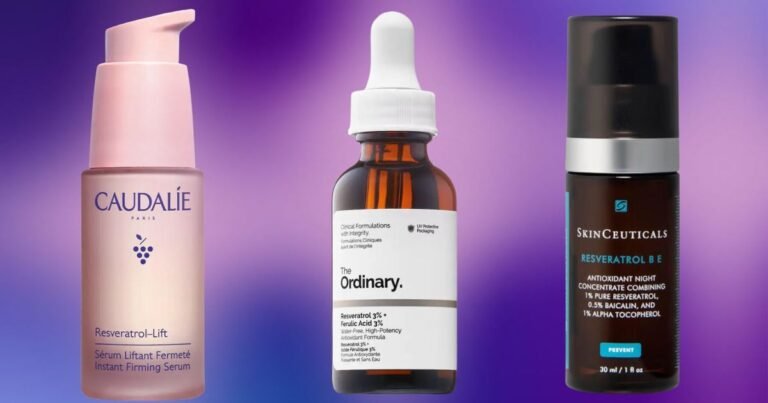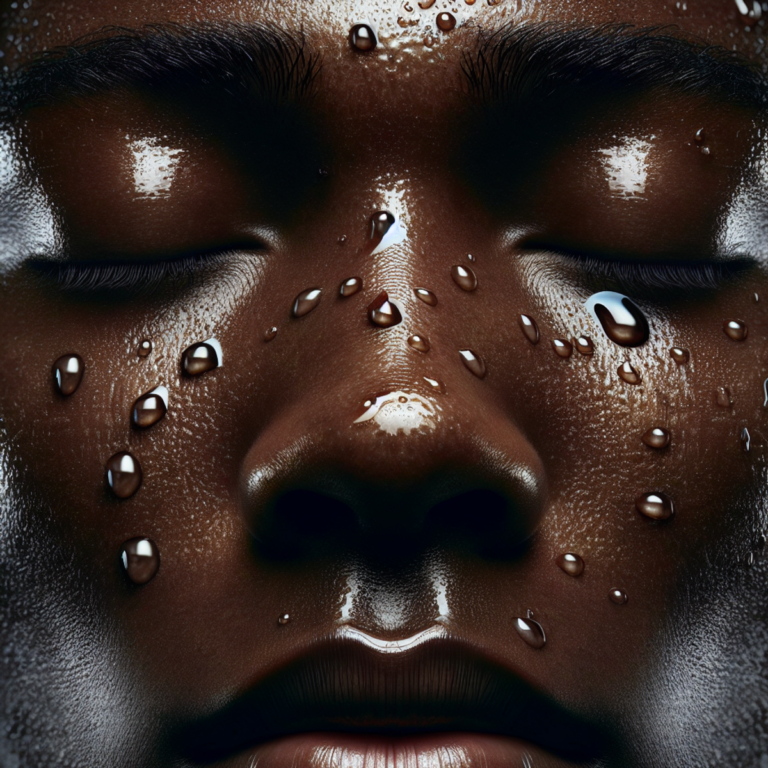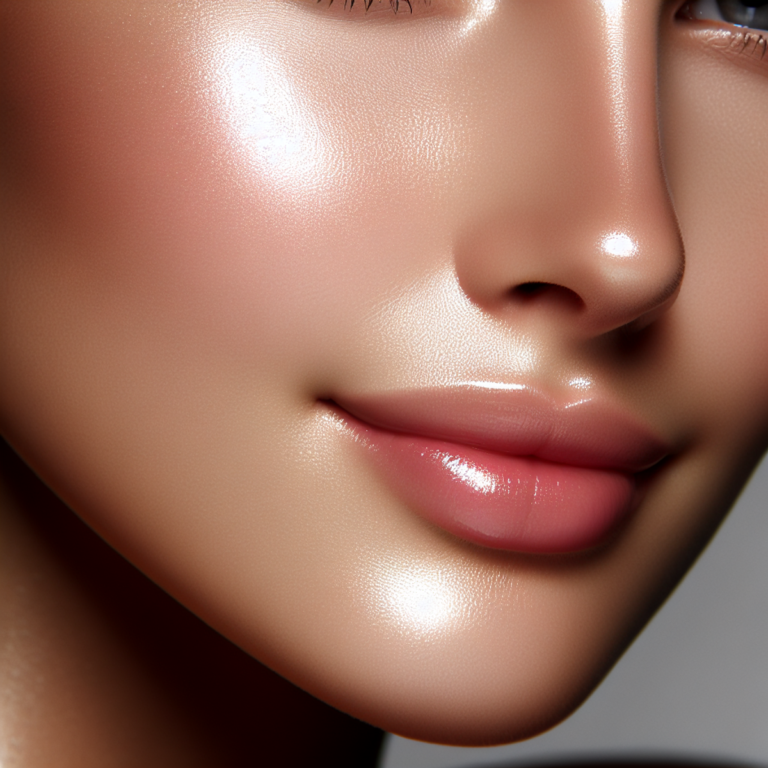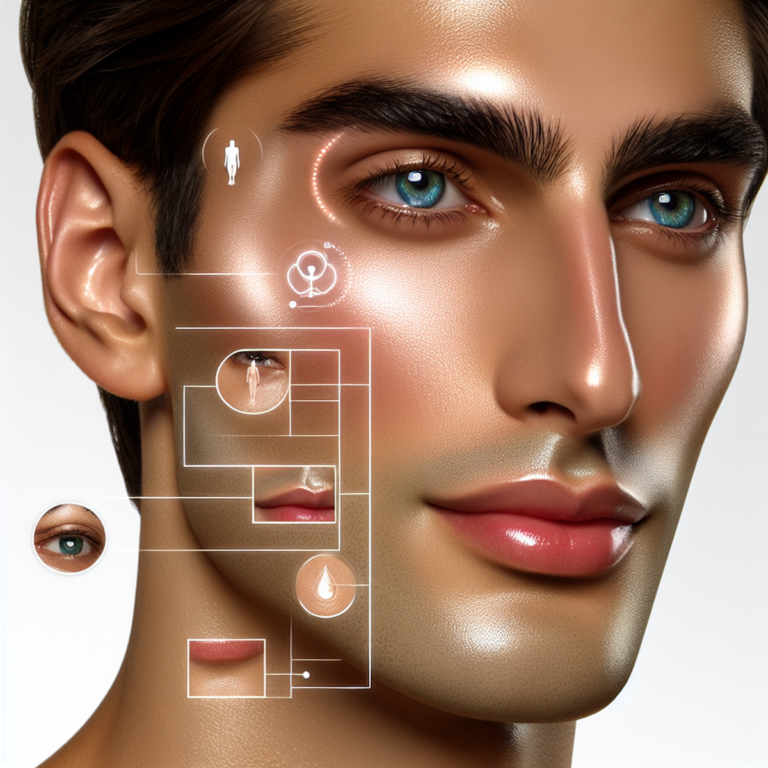Powerful Home Remedies For Acne!

Introduction
Acne is a common skin condition that affects millions of people worldwide. It is characterized by the presence of pimples, blackheads, whiteheads, and occasionally cysts on the face, chest, and back. Acne can have a significant impact on self-esteem and overall well-being, making it essential to find effective treatment options.
Home remedies for acne have gained popularity due to their effectiveness and the use of natural ingredients that are easily available. These remedies offer an alternative to commercial skincare products that may contain harsh chemicals. Moreover, they can be more cost-effective in the long run.
In this article, we will explore powerful home remedies for acne that have been backed by scientific research and anecdotal evidence. However, it is important to note that severe or persistent cases of acne should be evaluated by a dermatologist. They can provide personalized advice and recommend suitable treatment options.
By incorporating these home remedies into your skincare routine, you can take proactive steps towards achieving clearer and healthier skin. Let’s explore natural remedies for acne and how they can effectively fight against it.
1. Tea Tree Oil for Acne
Tea tree oil, which is derived from the leaves of the Melaleuca alternifolia plant, has gained significant recognition as a potent remedy for acne treatment. This natural alternative to conventional acne treatments has become widely popular due to its effectiveness and the availability of its natural ingredients.
Antibacterial Properties
One of the key reasons behind tea tree oil’s efficacy in acne treatment is its remarkable antibacterial properties. It contains a compound called terpinen-4-ol, which has been found to exhibit strong antimicrobial activity against Propionibacterium acnes—the bacteria responsible for acne breakouts. By reducing the number of these acne-causing bacteria on the skin, tea tree oil helps prevent new breakouts and promotes clearer skin.
Anti-Inflammatory Effects
Another notable benefit of tea tree oil is its possession of anti-inflammatory effects. This property can significantly alleviate redness, swelling, and inflammation associated with acne lesions. By calming the skin and minimizing inflammation, tea tree oil aids in the healing process and prevents further irritation.
Correct Usage
To use tea tree oil effectively for acne treatment:
- Dilute the tea tree oil: Mix a few drops of tea tree oil with a carrier oil such as coconut or jojoba oil. This is important because undiluted tea tree oil can be harsh on the skin and cause dryness or irritation.
- Apply to affected areas: Using a cotton swab or clean fingertips, apply the diluted tea tree oil directly to the acne-prone areas of your skin.
- Leave it on overnight: Allow the tea tree oil to penetrate your skin overnight for maximum effectiveness.
- Rinse off in the morning: Gently wash your face with a mild cleanser to remove any residue.
It’s important to note that tea tree oil may not be suitable for everyone. Some individuals may experience skin sensitivity or allergic reactions when using this essential oil. Therefore, it’s recommended to perform a patch test on a small area of your skin before applying it to your face.
Tea tree oil can be a powerful ally in your fight against acne. However, it’s always a good idea to consult with a dermatologist, especially if you have severe or persistent acne. They can provide personalized advice and recommend the most suitable treatment options for your specific skin condition.
For more information on tea tree oil and its benefits, you can refer to this comprehensive article on Healthline.
2. Zinc Supplements for Acne
Zinc supplements have gained popularity as a home remedy for acne due to their role in maintaining healthy skin and their effectiveness in reducing acne symptoms. Here are some key points to consider when using zinc supplements for acne:
Role of zinc in maintaining healthy skin
Zinc is an essential mineral that plays a crucial role in various bodily functions, including skin health. It helps regulate oil production, reduces inflammation, and aids in wound healing, making it beneficial for acne-prone skin.
Effectiveness in reducing acne symptoms
Studies have shown that zinc supplements can help reduce acne symptoms such as inflammation and excess oil production. Zinc has antibacterial properties that can help fight acne-causing bacteria, while also promoting the healing of existing pimples.
Recommended dosage of zinc supplements
The recommended daily dosage of zinc supplements for acne is typically around 30-60 mg. However, it’s important to consult with a healthcare professional before starting any new supplement regimen, as the appropriate dosage may vary depending on individual needs and health conditions.
Potential side effects to be aware of
While zinc supplements are generally safe for most people when taken in recommended doses, they can cause side effects such as nausea, stomach pain, and a metallic taste in the mouth. Taking excessive amounts of zinc can also lead to copper deficiency and weakened immune function. It’s crucial to follow the recommended dosage and consult with a healthcare professional if you experience any adverse effects.
When using zinc supplements for acne, it’s important to note that they may take time to show results. Consistency is key, and it may take several weeks or even months before noticeable improvements occur.
Individual responses to zinc supplements may vary, so what works for one person may not work for another.
Incorporating zinc-rich foods into your diet can also be beneficial for overall skin health. Foods such as oysters, beef, pumpkin seeds, and chickpeas are excellent sources of zinc. However, it’s important to note that dietary zinc may not be as readily absorbed by the body as supplements.
While zinc supplements can be a valuable addition to your acne-fighting regimen, it’s essential to approach acne treatment holistically. Maintaining a healthy lifestyle, practicing good skincare habits, and seeking professional advice when needed are all crucial steps towards managing acne effectively.
3. Honey and Cinnamon Mask for Acne
The combination of honey and cinnamon is a powerful remedy for treating acne breakouts. Both ingredients have antimicrobial properties that can help kill acne-causing bacteria and reduce inflammation. Here’s a simple recipe for a DIY honey and cinnamon mask:
Ingredients:
- 2 tablespoons of raw honey
- 1 teaspoon of cinnamon powder
Instructions:
- In a small bowl, mix the raw honey and cinnamon powder until they form a smooth paste.
- Cleanse your face thoroughly to remove any dirt or makeup.
- Using clean fingertips or a brush, apply the mask evenly to your face, focusing on areas prone to acne.
- Leave the mask on for about 10-15 minutes to allow the ingredients to work their magic.
- Rinse off the mask with lukewarm water and pat your face dry with a clean towel.
It’s important to note that everyone’s skin is different, and some individuals may be more sensitive to cinnamon than others. If you experience any irritation or discomfort while using this mask, discontinue use immediately.
While honey and cinnamon can be effective in treating mild to moderate acne, it’s crucial to maintain proper skincare practices alongside using this mask. Make sure to cleanse your face twice daily with a gentle cleanser suitable for your skin type. Also, moisturize regularly to keep your skin hydrated and prevent excessive oil production.
Remember, consistency is key when it comes to home remedies. It may take several weeks of regular use before you start seeing noticeable improvements in your acne symptoms. If you have severe or persistent acne, it’s advisable to consult a dermatologist for personalized advice and treatment options.
Next, let’s explore another powerful home remedy for acne: an apple cider vinegar toner.
4. Apple Cider Vinegar Toner for Acne
When it comes to natural remedies for acne, apple cider vinegar (ACV) is a powerful ingredient that can help improve the condition of your skin. ACV is known for its pH-balancing properties, which can create an unfavorable environment for acne-causing bacteria. Here is a guide on how to make a homemade ACV toner and incorporate it into your skincare routine:
- Dilute the ACV: Mix one part raw, unfiltered ACV with three parts water. This will help reduce the acidity of the vinegar and prevent any potential skin irritation.
- Test patch: Before applying the toner to your entire face, perform a patch test on a small area of your skin to check for any adverse reactions or sensitivity.
- Cleanse your face: Start by washing your face with a gentle cleanser to remove any dirt or impurities.
- Apply the toner: Dip a cotton pad into the diluted ACV solution and gently swipe it across your face, focusing on the areas prone to acne. Avoid using excessive pressure or rubbing too vigorously, as this can cause irritation.
- Allow it to dry: Let the toner air dry on your skin before moving on to the next step in your skincare routine.
- Moisturize: Follow up with a lightweight moisturizer to keep your skin hydrated and prevent any dryness that may occur from using ACV.
It’s important to note that while ACV can be effective in treating acne, it may not work for everyone. Some individuals may experience skin irritation or sensitivity, so it’s essential to monitor your skin’s reaction and adjust the dilution ratio accordingly. If you have particularly sensitive skin, you may want to consult with a dermatologist before incorporating ACV into your skincare routine.
Remember, consistency is key when using any home remedy for acne. It may take time to see noticeable improvements, so don’t be discouraged if you don’t see immediate results. If your acne persists or worsens, it’s always best to seek professional help from a dermatologist who can provide personalized advice and treatment options.
5. Green Tea Remedy for Acne
Green tea is not only a refreshing beverage, but it also offers numerous benefits for the skin. When it comes to acne, green tea’s antioxidant and anti-inflammatory properties make it a powerful remedy to add to your skincare routine. Here are some key points about using green tea for acne:
- Antioxidant Power: Green tea is rich in antioxidants called catechins, which help fight off free radicals that can damage the skin and contribute to acne breakouts. These antioxidants also help reduce inflammation, which is a common characteristic of acne-prone skin.
- Topical Application: One way to incorporate green tea into your acne-fighting routine is by using it topically. You can brew a cup of green tea, allow it to cool, and then apply it directly to your skin using a cotton pad or by spritzing it onto your face. This can help soothe inflammation, minimize redness, and promote healing.
- Green Tea Face Masks: Another option is to create a green tea face mask by mixing brewed green tea with other natural ingredients such as honey or yogurt. This combination can provide additional antibacterial properties and nourishment for the skin. Apply the mask to your face, leave it on for about 15 minutes, and then rinse off with warm water.
- Internal Consumption: Drinking green tea regularly can also have positive effects on acne-prone skin. The antioxidants in green tea work from within to help detoxify the body and improve overall skin health. Aim for 1-3 cups of green tea per day to reap its benefits.
- Caution: While green tea is generally safe for most people, some individuals may experience sensitivity or allergic reactions. It’s always a good idea to do a patch test before applying green tea topically and consult with a dermatologist if you have any concerns or existing skin conditions.
Incorporating green tea into your skincare routine can be a natural and effective way to combat acne. Whether you choose to apply it topically or enjoy it as a beverage, the antioxidant and anti-inflammatory properties of green tea can help reduce inflammation, soothe the skin, and promote a clearer complexion. So why not give green tea a try and see the positive impact it can have on your acne-prone skin?
6. Aloe Vera Gel for Acne
Aloe vera gel is a popular home remedy for acne due to its soothing and healing properties. It is known to reduce redness and irritation associated with acne breakouts, making it an effective natural treatment option.
To harness the maximum benefits of aloe vera gel for acne, you can follow these steps:
- Extract fresh aloe vera gel: Cut a mature aloe vera leaf from the plant and slice it open lengthwise. Scoop out the gel using a spoon or knife. Make sure to extract the gel carefully, avoiding any yellowish sap (aloe latex) that may have laxative effects.
- Cleanse your face: Before applying the aloe vera gel, cleanse your face with a gentle cleanser to remove any dirt or oil buildup.
- Apply the gel: Take a small amount of fresh aloe vera gel and apply it directly to the affected areas of your skin. Gently massage the gel into your skin using circular motions until it is fully absorbed.
- Leave it on: Allow the aloe vera gel to dry on your skin naturally. You don’t need to rinse it off unless it feels sticky.
- Repeat regularly: For best results, repeat this process twice daily, once in the morning and once at night, as part of your skincare routine.
Apart from topical application, you can also consume aloe vera juice or supplements to promote overall skin health. However, it’s essential to consult with a healthcare professional before adding any new supplement to your diet.
If you don’t have access to fresh aloe vera leaves, you can purchase commercially available aloe vera gels or creams. Just make sure to check the ingredients and choose products that contain pure aloe vera without any added chemicals or fragrances.
Remember, consistency is key when using aloe vera gel for acne. It may take some time to see noticeable improvements, so be patient and continue using it regularly.
7. Fish Oil Supplements for Acne
Fish oil supplements have gained attention for their potential benefits in managing acne, thanks to the presence of omega-3 fatty acids that play a crucial role in maintaining skin health and reducing inflammation. Here are some key points to consider when exploring fish oil as a remedy for acne:
1. Role of Omega-3 Fatty Acids
Omega-3 fatty acids found in fish oil offer anti-inflammatory properties that can help alleviate acne symptoms. By regulating oil production and reducing inflammation, these essential fatty acids contribute to overall skin health, potentially leading to fewer breakouts.
2. Dietary Sources of Omega-3s
In addition to fish oil supplements, incorporating dietary sources of omega-3 fatty acids such as salmon, chia seeds, flaxseeds, and walnuts into your meals can complement the effects of fish oil in an anti-acne diet. Diversifying the sources of omega-3s ensures a well-rounded approach to enhancing skin health.
3. Recommended Dosage and Risks
When considering fish oil supplements for acne, it’s important to consult with a healthcare professional to determine the appropriate dosage based on individual needs. Additionally, individuals taking blood-thinning medications should exercise caution, as fish oil may interact with these medications and pose potential risks.
Integrating fish oil supplements and omega-3-rich foods into your diet may offer a holistic approach to managing acne from within. However, it’s essential to seek personalized advice from a healthcare provider to ensure safe and effective use of these supplements, especially when addressing specific skin concerns like acne.
Lifestyle Tips for Long-Term Acne Management
When it comes to managing acne in the long term, lifestyle changes play a crucial role. Alongside utilizing home remedies, incorporating the following practices into your daily routine can help keep your skin healthy and minimize breakouts:
1. Stress Management
Stress can trigger hormonal imbalances that contribute to acne flare-ups. Incorporating stress management techniques such as exercise, meditation, yoga, or deep breathing exercises can help reduce stress levels and promote overall skin health.
2. Essential Skincare Practices
Proper skincare routines are essential for acne management. Consider the following practices:
- Cleanse your face twice a day with a gentle cleanser to remove excess oil, dirt, and impurities that can clog pores.
- Avoid using harsh scrubs or abrasive cleansers that can irritate the skin and worsen acne.
- Use non-comedogenic moisturizers to keep your skin hydrated without clogging pores.
- Apply sunscreen daily to protect your skin from harmful UV rays, which can aggravate acne.
- Avoid touching your face throughout the day as it can transfer bacteria and oils onto the skin, leading to breakouts.
3. Dietary Considerations
While no specific food has been proven to cause acne, certain dietary factors may contribute to its development or exacerbation. Consider the following recommendations:
- Limit consumption of sugary and processed foods as they can increase inflammation in the body and potentially worsen acne symptoms.
- Include plenty of fruits, vegetables, whole grains, and lean proteins in your diet to support overall skin health.
- Stay hydrated by drinking an adequate amount of water each day as it helps flush out toxins from the body.
4. Resist Picking or Popping Pimples
Although tempting, picking or popping pimples can cause further inflammation and potentially lead to scarring. It’s important to resist this urge and allow pimples to heal naturally. If needed, consult a dermatologist for safe and effective methods of pimple extraction.
5. Educate Yourself
Understanding the basics of skincare is crucial for long-term acne management. For teenagers struggling with acne, it’s especially important to be aware of proper skincare practices. Websites like KidsHealth offer valuable insights and tips tailored specifically to their age group.
By implementing these lifestyle tips alongside home remedies, you can effectively manage acne and promote healthier skin in the long term. However, if your acne persists or worsens despite these efforts, it’s essential to consult a dermatologist for personalized advice and treatment options tailored to your specific needs.
Seeking Professional Help
If your acne persists or becomes severe, it’s best to seek professional help. A dermatologist can provide expert guidance and personalized treatment options to effectively manage your acne and prevent potential scarring or long-term skin damage. Here are some reasons why you should consider consulting a dermatologist:
- Assessing Severity: A dermatologist can assess the severity of your acne and determine the most appropriate course of action.
- Personalized Treatment: They can create a customized treatment plan based on your specific skin needs, which may include prescription medications, skincare routines, or advanced therapies.
- Preventing Future Breakouts: Dermatologists can offer valuable insights into maintaining long-term skin health and preventing future acne flare-ups through targeted strategies and professional-grade skincare products.
Remember, while these home remedies can be effective for mild to moderate acne, it’s important to consult a dermatologist for personalized advice and treatment options in severe cases.










